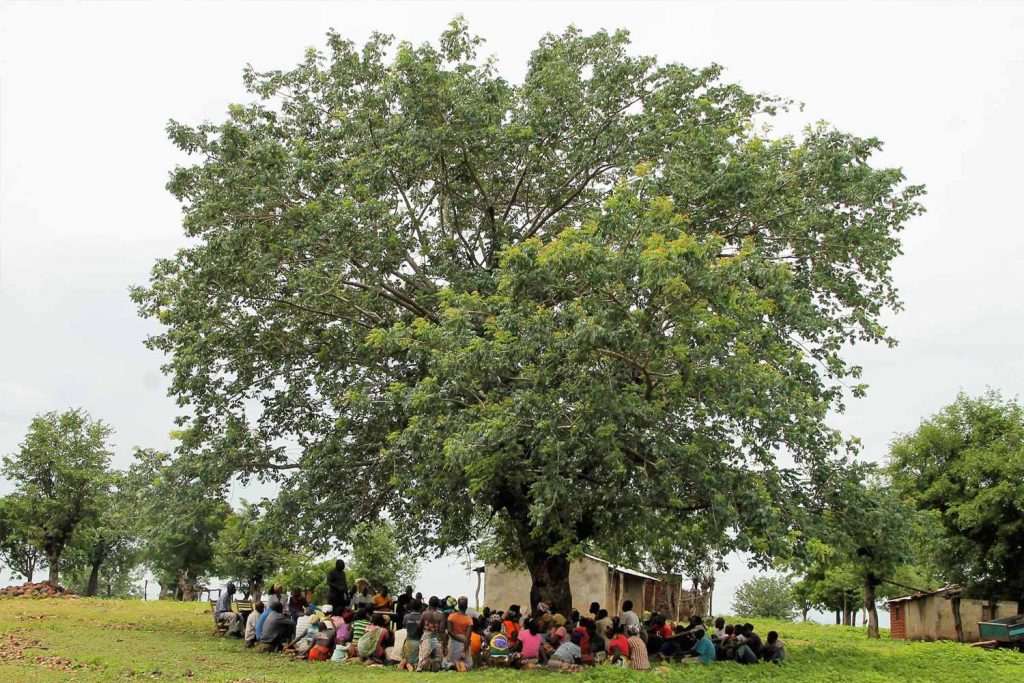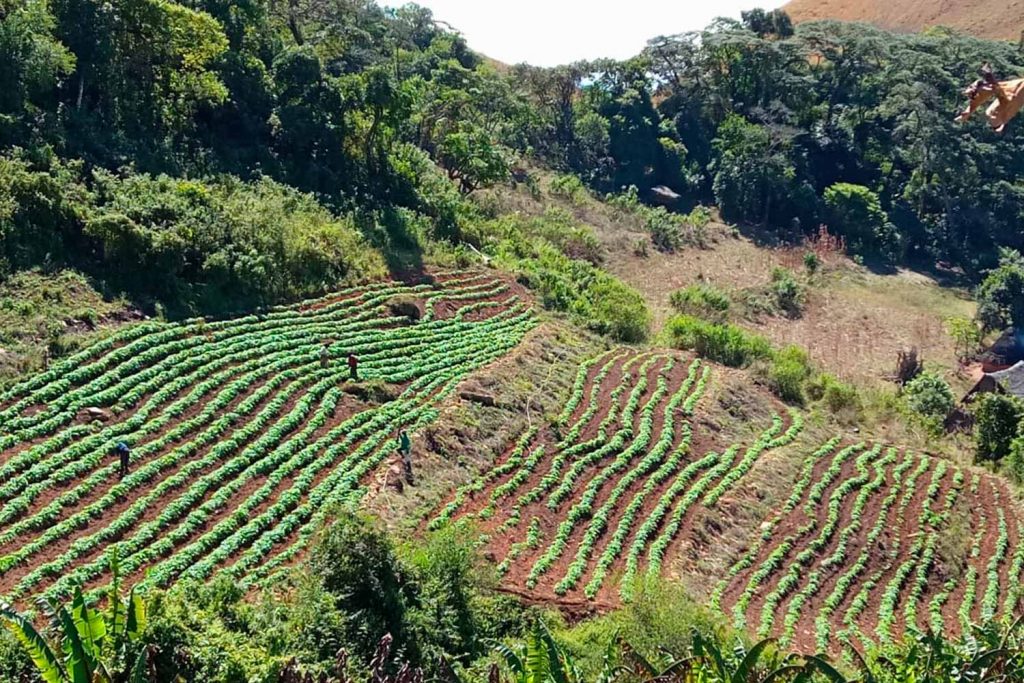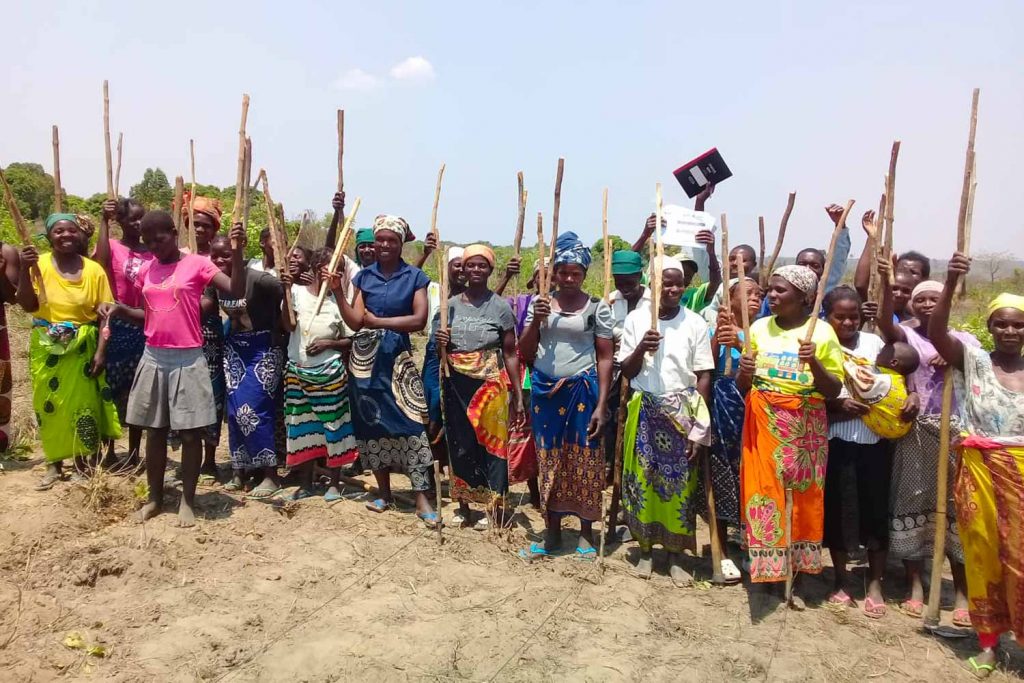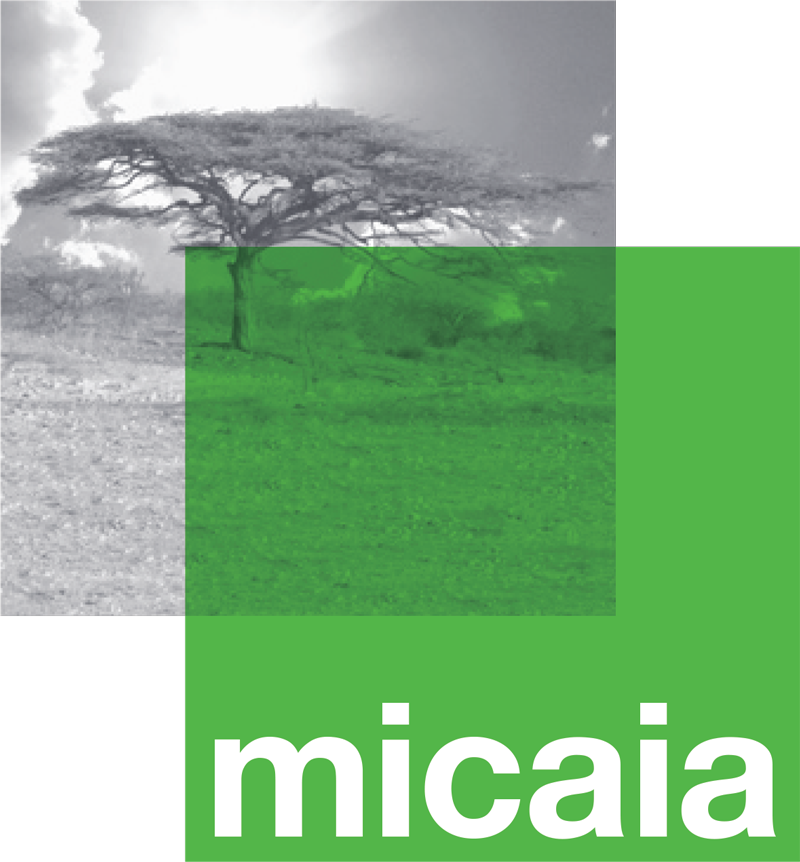About us
Our work so far
Helping individuals change their lives
Most of Micaia’s work creates opportunities for individuals to lead change in their own lives…
Pioneering change in sectors and value chains
Micaia has played a central role in strengthening beekeeping in Manica Province…
Informing change at national and international levels
We have reason to believe that our work is having some influence…
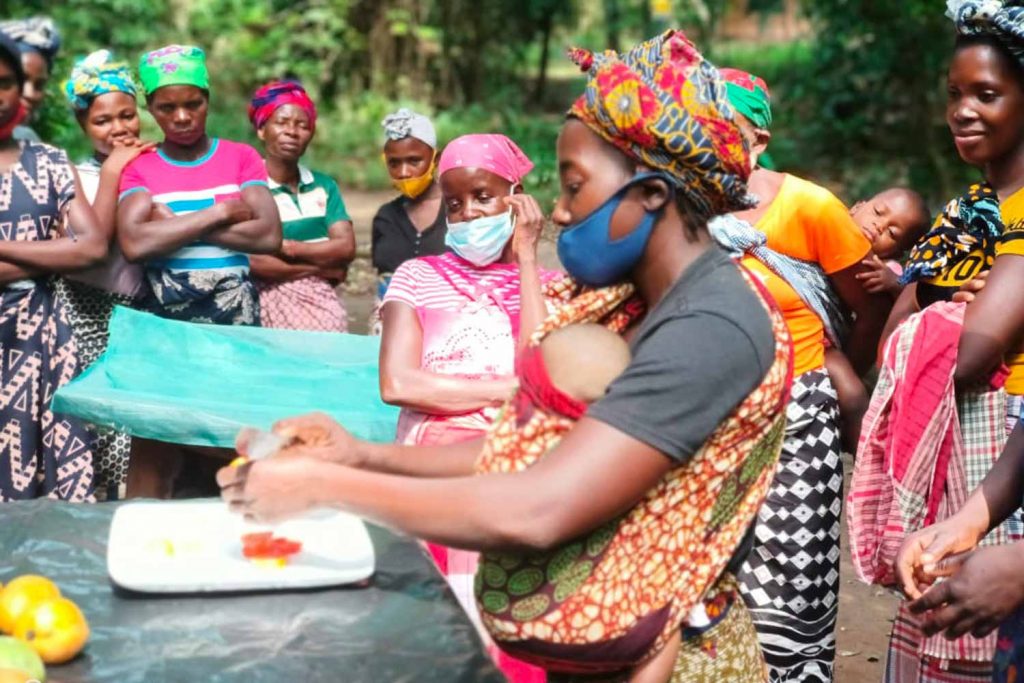
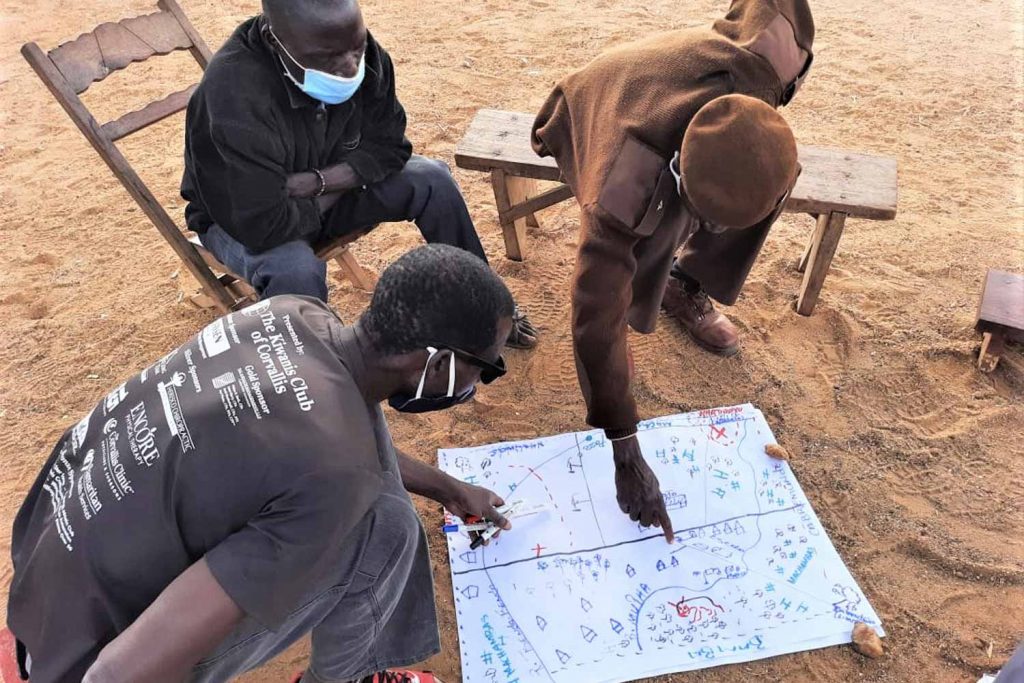
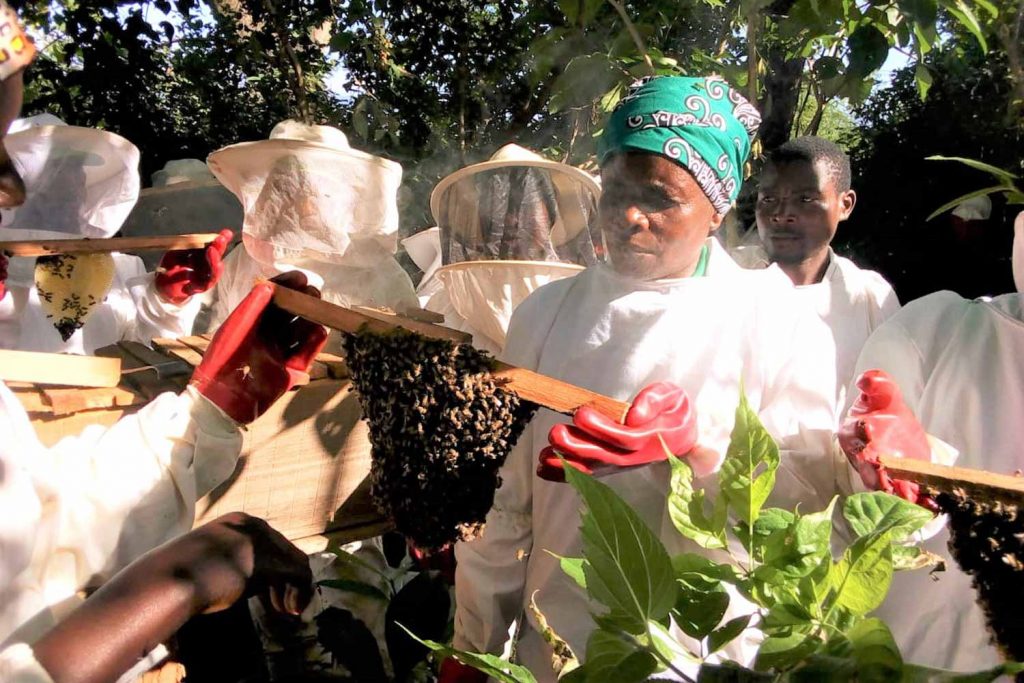
Helping individuals change their lives
Most of Micaia’s work creates opportunities for individuals to lead change in their own lives, their families, and their communities. Since 2008, we estimate that at least 120,000 individuals have benefited directly from Micaia’s projects and enterprises. It’s hard to estimate the number of people who have gained indirectly. If a farmer produces more food, or a beekeeper sells more honey at a better price, the whole family benefits.
If a community is helped to manage resources in a more sustainable way, hundreds of families will benefit for years to come. If the young activists who have trained and been inspired through Micaia’s projects keep on mobilizing their peers, hundreds of other young people will learn and become more active citizens. It’s probably safe to say that more than 1 million people have gained in some way from Micaia’s work.
A few numbers
Farming
- 105,000 farmers supported with training on ways to improve productivity without the use of expensive inputs such as fertilizer
- 350 lead farmers trained to establish and manage demonstration plots and train others
Beekeeping
- 1,250 people trained in beekeeping
- 120 experienced beekeepers trained as Lead Beekeepers, each now supporting 10-15 other beekeepers
- More than 5,000 improved beehives distributed
- Honey production in Sussundenga District, Manica Province, increased from 4 tons per year to more than 40 tons
Women
- 3,500 women have been trained and supported in becoming part of natural product value chains, gaining new skills and knowledge, and earning more money
- More than 1,000 women are taking part in Micaia’s Capabilities programme – informal learning designed to build knowledge and confidence
Youth
- 15,000 young women and men in Chimoio have got involved in #theChimoioWeWant – helping shape the city’s development agenda and creating new opportunities for young people.
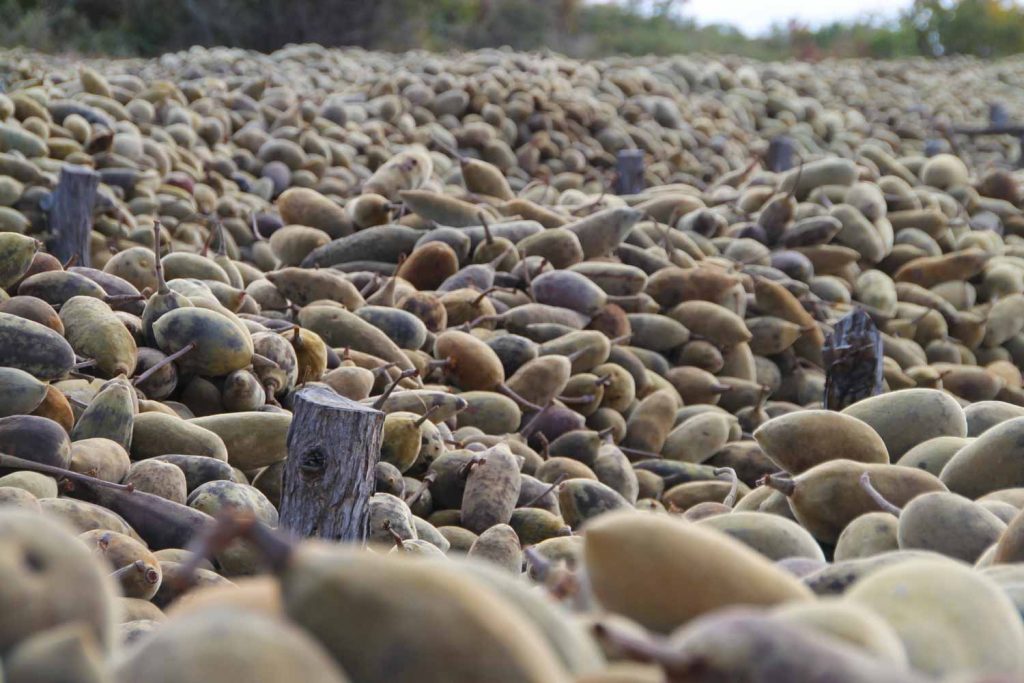
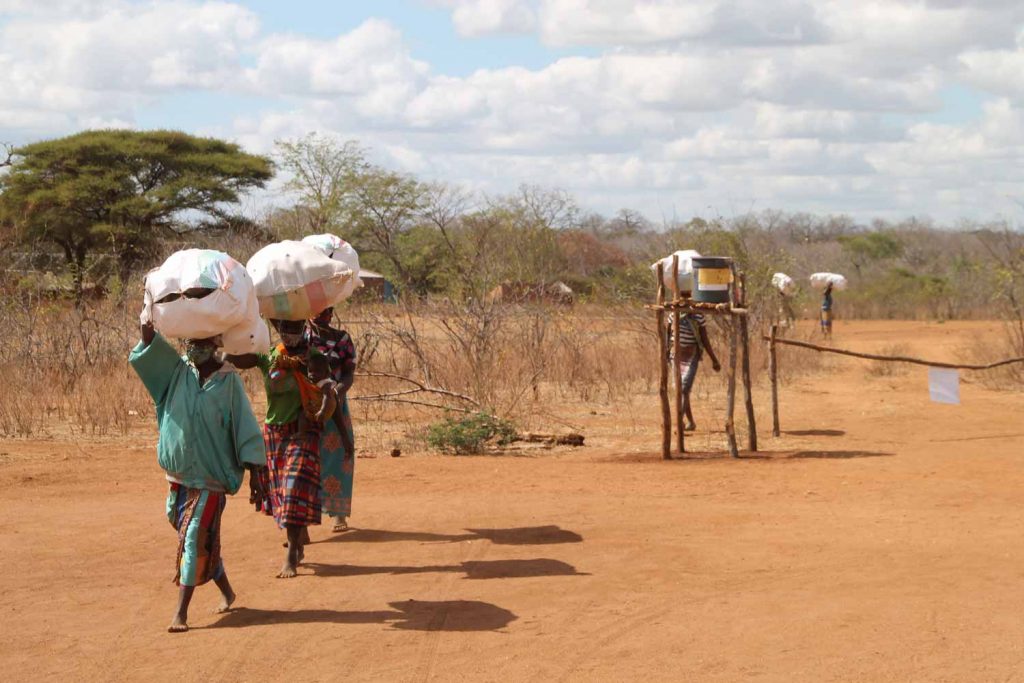
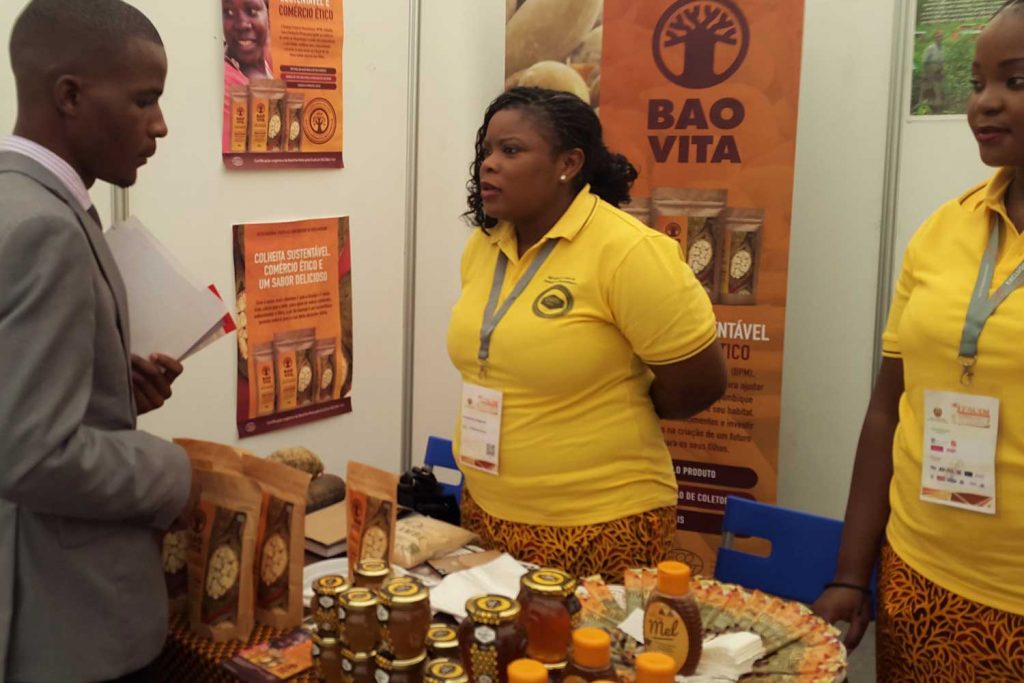
Pioneering change in sectors and value chains
Micaia has played a central role in strengthening beekeeping in Manica Province, professionalizing the supply chain for what is now Mozambique’s largest honey business, the Mozambique Honey Company. A decade on from its launch, MHC is at the heart of a dynamic, fast-growing honey industry. By the end of 2022, with support from GIZ, Micaia will have helped launch the National Apiculture Council of Mozambique.
BioTrade is a core focus of Eco-Micaia’s work, and in the case of baobab, we have transformed an entirely informal seasonal trade into a commercial value chain with Baobab Products Mozambique (BPM) at its heart.
BPM has won awards and been featured in numerous reports and case studies including How we made it in Africa. Through BPM, leading members of the women’s Collectors Association (2,500 members) have participated in national and international conferences. New products using BPM’s powder are on the national market, including the ‘Sumo da Terra’ juice produced by Sumol Compal.
BPM’s approach and prices have also influenced the market, helping all collectors gain a little more from baobab.
A few numbers
- Since Micaia started work in the baobab value chain, registered exports of powder have increased from zero to more than 150 tons per year
- Baobab Products Mozambique (BPM) secured organic certification in 2016 and has built a business with 3,050 women suppliers, exporting 40-70 tons of powder annually to Europe
- BPM has also built a national market.
- Micaia has been supporting beekeeping in areas including Chimanimani since 2014, where marketing of honey has increased from 4 tons per year to 40 tons, and where there are now almost 1,000 families involved in beekeeping
- In 2011, Eco-Micaia co-founded the Mozambique Honey Company (MHC) and since 2013, has been managing the business. In 2021, MHC sold 23 tons of honey in its various brands, all in Mozambique.
